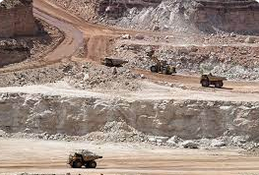Niger’s military junta has taken operational control of Somair, the uranium mining subsidiary of French nuclear giant Orano, amid escalating disputes over mining regulations and foreign influence.
Since seizing power in a 2023 coup, the junta has pursued an aggressive overhaul of foreign mining operations in Niger, the world’s seventh-largest uranium producer, signaling a strategic shift in its economic and diplomatic alignments.
Authorities recently revoked Orano’s permit for the massive Imouraren uranium deposit, a resource of significant global interest, and sealed the Benin border, halting uranium exports vital to Niger’s economy. The junta has also downgraded its longstanding ties with France, inviting Russian firms to explore investment opportunities in its lucrative mining sector.
Fallout with Orano
Orano, which owns a 63.4% stake in Somair, suspended its operations in October, citing increasing governance interference and an unstable operating environment. The French company, a cornerstone of Niger’s uranium industry, has expressed concerns over the junta’s regulatory changes, which undermine its contractual rights and operational autonomy.
The junta’s actions align with its broader effort to assert control over natural resources, which have long been dominated by foreign interests. Uranium is a critical component of Niger’s exports, and the junta’s decision to sever ties with France, a major recipient, marks a pivotal economic and political departure.
Strategic shift toward Russia
Niger’s overtures to Russian companies signal a shift toward diversifying its partnerships and reducing reliance on traditional Western allies. Russian firms, with substantial expertise in the mining sector, could play a key role in reshaping Niger’s uranium industry. This development also reflects the broader geopolitical realignment seen across parts of Africa, where nations are increasingly turning to Russia and China for investments and support.
Long-term implications
The junta’s moves could have far-reaching consequences for Niger:
Economic impact: While the push for greater resource sovereignty may boost government revenues in the short term, uncertainty over regulatory policies could deter foreign investment, a critical driver of Niger’s mining sector.
Geopolitical realignment: The pivot from France to Russia could reshape Niger’s international alliances. However, it risks alienating Western nations, potentially leading to sanctions or reduced development aid.
Mining sector revamp: By overhauling mining contracts and inviting new players, Niger might achieve greater control over its natural resources. However, operational disruptions and expertise gaps could delay the realization of these benefits.
Global uranium markets: Niger’s actions could disrupt global uranium supply chains, potentially driving up prices and prompting shifts in the nuclear energy sector.
While the junta’s approach signals a bold assertion of sovereignty, it also exposes Niger to significant risks. Balancing immediate political goals with long-term economic stability will be critical for the country’s future.
As Niger redefines its path, the world watches closely, assessing the implications of its shift from traditional alliances to new global players.


